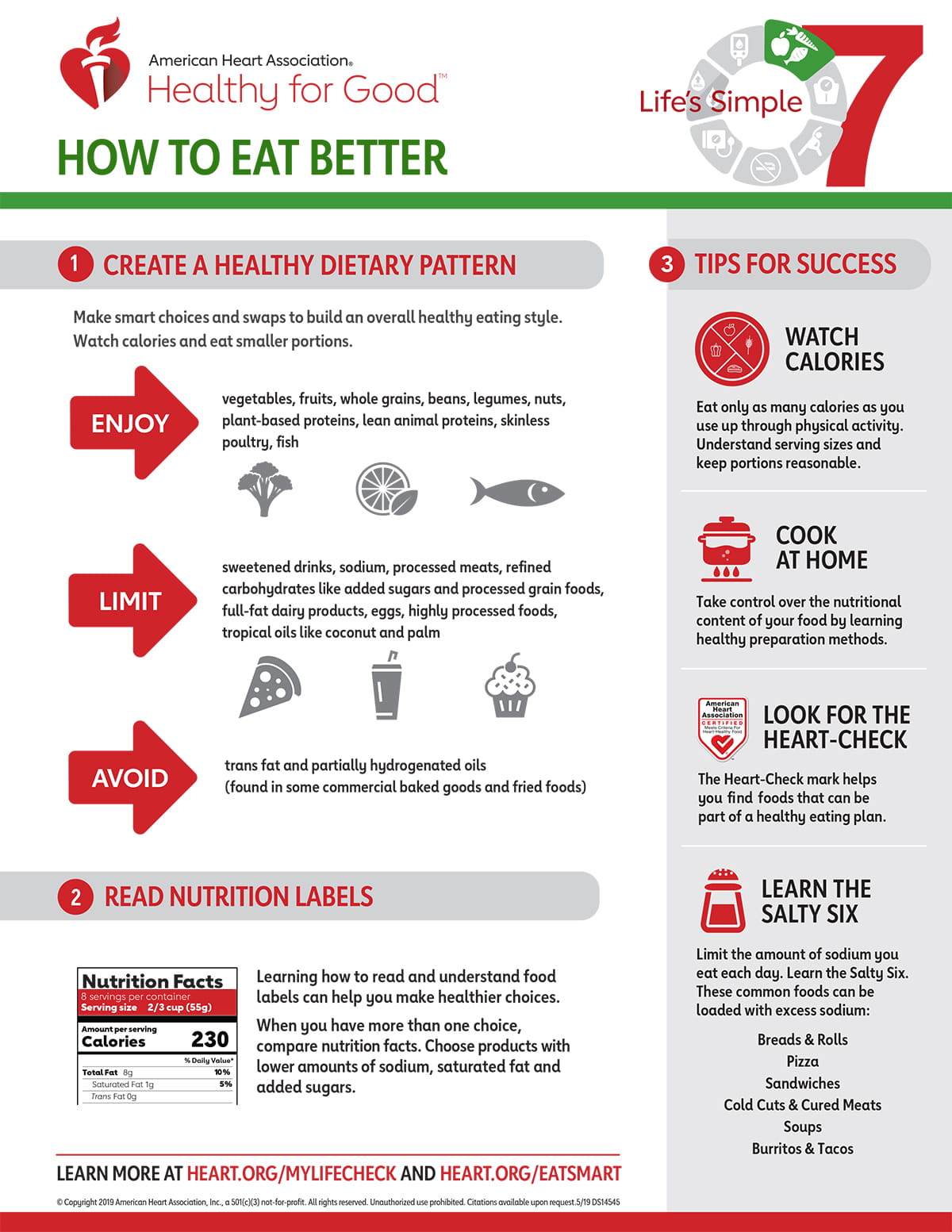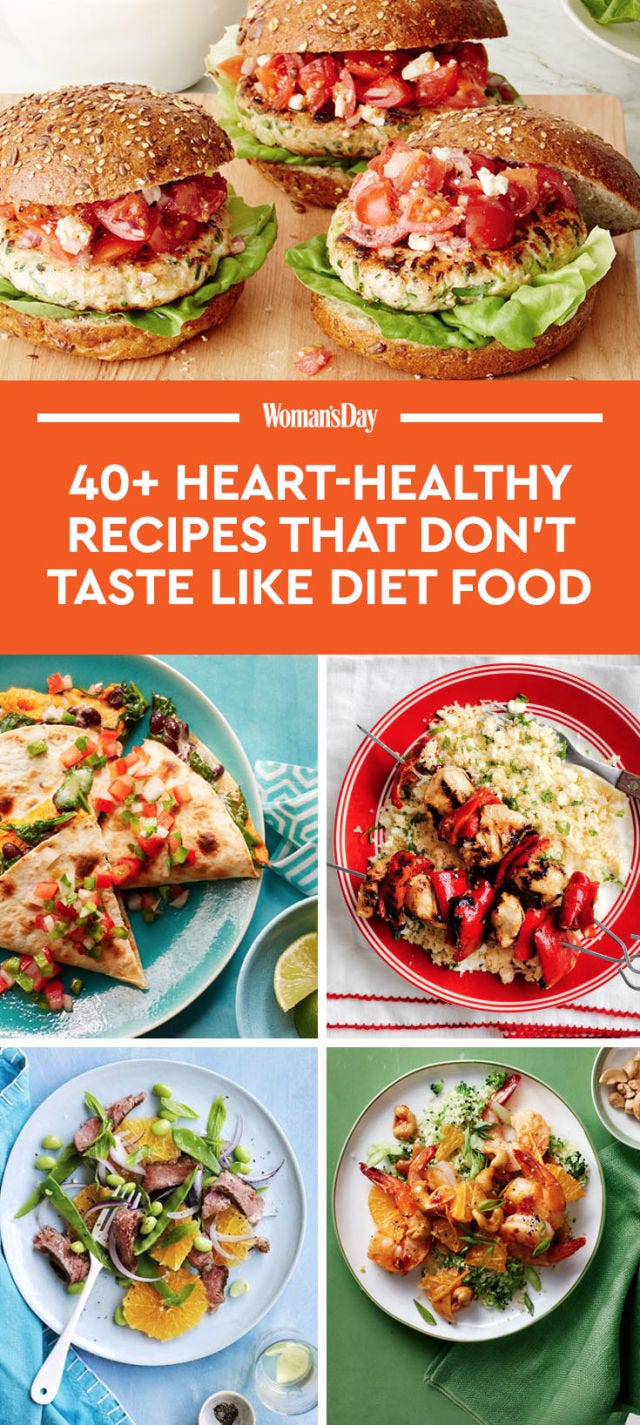Heart health is essential to a long and healthy life, which is why it is crucial to always be mindful of the food that we eat. With the fast-paced and often hectic lifestyle that we have, it can be easy to forget about the importance of taking care of our hearts. However, with the right guidance, it is possible to maintain a healthy heart through the food that we eat.
 Healthy Heart Diet Plan
Healthy Heart Diet Plan
The first step towards achieving a healthy heart is by following a healthy heart diet plan. A healthy heart diet plan focuses on healthy and nutritious foods that help to reduce the risk of heart diseases. It includes foods that are rich in essential nutrients such as vitamins, minerals, and fibers.
The American Heart Association recommends consuming a balanced and varied diet that includes fruits, vegetables, whole grains, lean proteins, and healthy fats. By incorporating these foods into your diet, you can help to reduce the risk of heart disease, manage your weight, and improve your overall well-being.
 Heart Healthy Diet
Heart Healthy Diet
A heart healthy diet is all about making healthy choices that are good for your heart. This means choosing foods that are low in saturated and trans fats, sugar, and sodium. Foods that are high in fiber, vitamins, and minerals are also excellent choices for a heart healthy diet.
Some examples of heart healthy foods include:
- Fruits and vegetables
- Whole grains
- Lean proteins such as fish, poultry, and lean cuts of beef or pork
- Healthy fats such as nuts, seeds, olive oil, and avocado
A heart healthy diet can also help to reduce the risk of high blood pressure, high cholesterol, and diabetes. By making healthy choices, you can help to protect your heart and improve your overall health.
 Heart-Healthy Grocery List
Heart-Healthy Grocery List
One of the best ways to follow a heart healthy diet is by making sure that your grocery list is packed with healthy and nutritious foods. By choosing the right foods at the grocery store, you can make healthy choices and ensure that you have plenty of healthy options available at home.
Here is a heart healthy grocery list to get you started:
- Fruits and vegetables (fresh, frozen, or canned without added sugar or sodium)
- Whole grains (brown rice, quinoa, whole wheat bread, pasta, and cereal)
- Lean proteins (skinless chicken or turkey, fish, beans, lentils, and tofu)
- Healthy fats (nuts, seeds, olive oil, and avocado)
- Low-fat dairy (milk, cheese, and yogurt)
By using this heart healthy grocery list as a guide, you can make sure that you always have healthy and nutritious options available.
 Heart-Healthy Meal
Heart-Healthy Meal
A heart-healthy meal should contain a mix of healthy carbohydrates, protein, and fats. The American Heart Association recommends that you fill your plate with:
- Half fruits and vegetables
- A quarter of healthy protein sources such as fish, poultry, beans, and tofu
- A quarter of healthy carbohydrates such as brown rice, whole wheat pasta, or sweet potato
It is also important to limit the amount of saturated and trans fats that you consume. Instead, choose healthy fats such as nuts, seeds, olive oil, and avocado. By following these guidelines, you can create a heart-healthy meal that is both delicious and nutritious.
 Heart-Healthy Recipes
Heart-Healthy Recipes
If you’re looking for tasty and healthy recipes to incorporate into your heart-healthy diet, there are plenty of options available. From breakfast to dinner and everything in between, there are countless healthy recipes that you can try.
Some heart-healthy recipes that you might want to try include:
- Fruit and yogurt parfait
- Grilled chicken salad
- Baked salmon
- Quinoa salad
By incorporating heart-healthy recipes into your diet, you can enjoy delicious and nutritious meals that help to support your heart health.
 21 Steps to a Healthy Heart
21 Steps to a Healthy Heart
Leading a heart-healthy lifestyle involves more than just healthy eating. Here are 21 steps that you can take to support your heart health:
- Quit smoking
- Maintain a healthy weight
- Exercise regularly
- Control your blood pressure
- Reduce stress
- Get enough sleep
- Manage your diabetes
- Manage your cholesterol
- Avoid excessive amounts of alcohol
- Avoid processed foods
- Avoid sugary drinks
- Avoid trans fats
- Choose healthy fats
- Eat a variety of fruits and vegetables
- Eat whole grains
- Eat lean proteins
- Choose low-fat dairy products
- Avoid or limit red and processed meats
- Choose healthy snacks
- Read food labels carefully
- Stay hydrated
By following these 21 steps, you can support your heart health and reduce the risk of heart disease.
 Heart-Healthy Tips
Heart-Healthy Tips
In addition to a heart-healthy diet, there are many other things that you can do to support your heart health. Here are some heart-healthy tips:
- Take the stairs instead of the elevator
- Stand up and move around every hour during the workday
- Try a new physical activity, such as yoga or dancing
- Set realistic goals for exercise and be consistent
- Cook at home instead of eating out
- Practice stress reduction techniques, such as meditation or deep breathing
- Take time to relax and enjoy yourself
- Get enough sleep
- Stay connected with friends and family
By following these heart-healthy tips, you can support your heart health and improve your overall well-being.
 Heart-Healthy Menu
Heart-Healthy Menu
Creating a heart-healthy menu is easy when you follow these simple guidelines:
- Make sure that half of your plate is filled with fruits and vegetables
- Choose lean protein sources such as fish, poultry, beans, and tofu
- Incorporate healthy fats such as nuts, seeds, olive oil, and avocado into your meals
- Choose whole grains instead of refined grains
- Avoid or limit processed foods, sugary drinks, and trans fats
- Read food labels carefully and choose foods that are low in saturated fat, sugar, and sodium
- Enjoy healthy and delicious meals that support heart health
By following a heart-healthy menu, you can enjoy delicious and nutritious meals that support your heart health and overall well-being.
 Beginner Heart-Healthy Diet Plan
Beginner Heart-Healthy Diet Plan
Transitioning to a heart-healthy diet can be challenging, especially if you are new to healthy eating. Here is a beginner heart-healthy diet plan to get you started:
- Day 1
- Breakfast: Greek yogurt with berries
- Snack: Apple with almond butter
- Lunch: Grilled chicken salad
- Snack: Carrots with hummus
- Dinner: Baked salmon with quinoa and roasted vegetables - Day 2
- Breakfast: Oatmeal with nuts and fruit
- Snack: Mixed berries
- Lunch: Tuna salad with whole wheat crackers
- Snack: Greek yogurt with honey
- Dinner: Chickpea and vegetable stir-fry - Day 3
- Breakfast: Whole wheat toast with avocado and egg
- Snack: Orange slices
- Lunch: Grilled chicken wrap with veggies
- Snack: Raw veggies and dip
- Dinner: Lentil and vegetable soup
By following this beginner heart-healthy diet plan, you can ease into a healthy eating routine and start enjoying the benefits of a heart-healthy diet.
 Low Protein Food List
Low Protein Food List
Although protein is an essential nutrient, too much protein can be harmful to the heart. A low protein diet may be recommended for individuals with certain health conditions such as kidney disease. Here is a low protein food list:
- Fruits and vegetables
- Grains such as rice and pasta
- Bread and crackers without nuts or seeds
- Potatoes and sweet potatoes
- Fats such as olive oil, avocado, and low-fat margarine
- Sugar and sweets
- Low-protein milk and dairy products
By following a low protein diet, individuals with certain health conditions can manage their health and support their heart health.
By following these tips and guidelines, you can support your heart health and reduce the risk of heart disease. Remember, a healthy heart starts with healthy choices. Start making healthy choices today to support your heart health and improve your overall well-being.